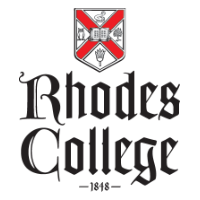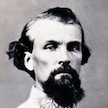 Students in a history class at Rhodes College in Memphis spent the fall semester researching the slave trade that occurred in the city prior to the Civil War. As a result of this research, a new historically marker will be erected on the property of the Calvary Episcopal Church detailing the involvement of Nathan Bedford Forrest in the slave trade. Forrest was a Confederate General and the first Grand Wizard of the Ku Klux Klan.
Students in a history class at Rhodes College in Memphis spent the fall semester researching the slave trade that occurred in the city prior to the Civil War. As a result of this research, a new historically marker will be erected on the property of the Calvary Episcopal Church detailing the involvement of Nathan Bedford Forrest in the slave trade. Forrest was a Confederate General and the first Grand Wizard of the Ku Klux Klan.
 The new 462-word plaque will be placed near a 1955 historical marker noting the early home of General Forrest. That marker made no mention of the slave trade or the Klan.
The new 462-word plaque will be placed near a 1955 historical marker noting the early home of General Forrest. That marker made no mention of the slave trade or the Klan.
The new marker notes that “from 1854 to 1860, Nathan Bedford Forrest operated a profitable slave trading business at this site.” It accuses the general of “buying and selling Africans illegally smuggled into the United States in violation of an 1808 congressional ban.”


I congratulate you for recognizing and publicizing Forrest’s role in the slave trade. I covered his slave trading career ay some length in my book River Run Red: The Fort Pillow Massacre in the American Civil War, addressing the many mitigations that pro-Confederate memoirists and historians have cited to excuse Forrest: that he was a humane slave trader, that he never separated families, that he allowed slaves to go out and seek their own buyers/masters, all of which is demonstrable nonsense. I hope your plaque will reflect his unmitigated involvement and central role in the Tennessee slave trade.